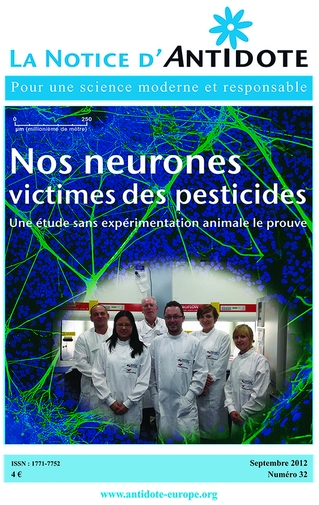Despite living in developed countries during an era of unparalleled scientific knowledge with access to modern medical technology, significantly more people suffer from serious disease. Antidote Europe exposes and explains this paradox.

We live in an era of unparalleled scientific knowledge, as evidenced in the huge number of specialised and popular science publications available today. We cannot help noticing the unfailing media coverage of never-ending medical breakthroughs. Yet despite all of this, we are witnessing a significant increase in the number of people who suffer from serious disease in the very same developed countries that have access to modern medical technology.
One of Antidote Europe’s primary objectives is to expose and explain this paradox, much of which has its origins in research methods that are outdated as they are unscientific. It should be noted that a significant proportion of this research is founded on animal experimentation.
Since its formal introduction at the end of the nineteenth century, animal experimentation has been shadowed by debate and controversy. Yet despite the ethical and scientific objections to this practice even within the scientific establishment, animal research became accepted dogma in teaching and research institutions well into the first half of the 20th century.
Antidote Europe considers animal research to be flawed on scientific grounds and has no wish to delve into the moral debate concerning animal rights.
